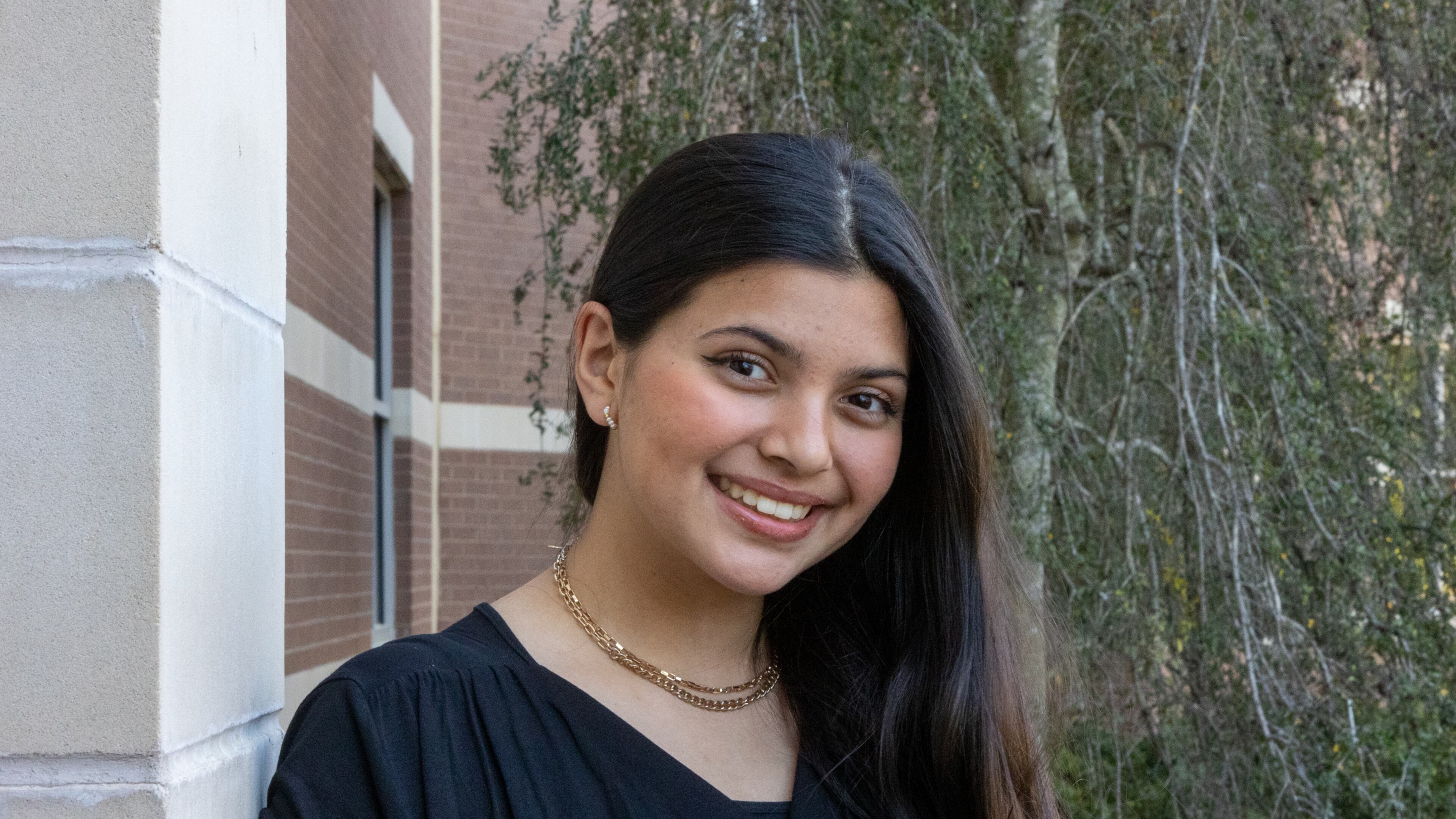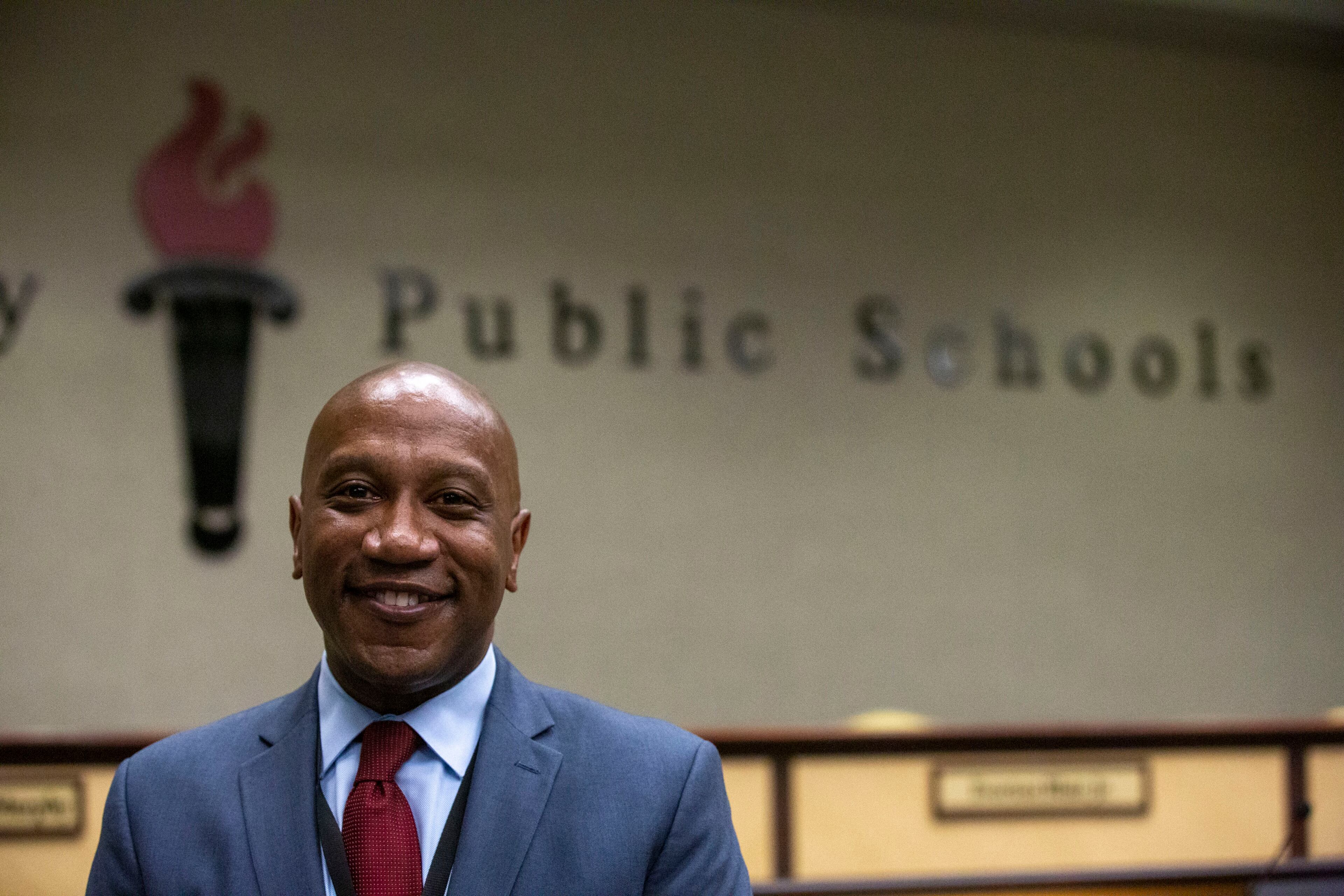Muslim students in Gwinnett ask for religious holiday off from school

Noor Ali will face a choice on May 2. She can go to school or celebrate a religious holiday with her family and friends.
It’s a choice she wishes Muslim students in Georgia’s largest school district didn’t have to make.
Ali, a freshman in Gwinnett County Public Schools, is leading an effort to make Eid al-Fitr a districtwide day off beginning with the 2023-2024 calendar. The holiday marks the end of Ramadan, the Muslim holy month of fasting. It’s celebrated one to three days and marked by feasting, gifts and prayer.
“I owe it to my friends, my little cousins, my school and the coming generation of Muslims all over the nation to at least try,” said Ali, a student at the Gwinnett School of Mathematics, Science, and Technology. She’s spoken to the school board and started an online petition, which has more than 8,000 signatures.
District staff will likely finalize that calendar later this year. Superintendent Calvin Watts said in an email the district tries to arrange the 180 days of school so the first semester ends before winter break and the second ends before Memorial Day.
“Any consideration of adding additional holidays to the calendar must be balanced with the knowledge that this action would result in days being added to the school calendar,” he said.
“To our knowledge, this is the first request in Georgia,” said Azka Mahmood, deputy director of the Georgia Council on American-Islamic Relations. “This is the best way to go about this change — for it to be student led.”

In recent years, school districts Detroit, New York City and elsewhere made Eid al-Fitr a holiday in response to appeals by the Muslim community.
“Whether or not schools have the capacity to give the days off for all minority religious holidays, they need to think about how to recognize these holidays in some way so teachers are aware and the community is aware,” said Linda K. Wertheimer, the Boston-area author of “Faith Ed: Teaching About Religion in an Age of Intolerance.”
Changing demographics are a factor. With an enrollment of 180,000 students, Gwinnett is one of the most diverse districts in the state. “Our students come from 133 countries and speak 110 different languages,” the district’s website says.
The Public Religion Research Institute found that Gwinnett County has more religious diversity than average. In 2020, it estimated that 2% of the county’s more than 900,000 residents are Muslim.
Gwinnett school board chair Tarece Johnson, who is Jewish, said she’s supportive of efforts to promote equity and inclusion in the district calendar. She acknowledged that the constraints of the school calendar can make it difficult to add days off.
“New Year’s, Easter, Thanksgiving and Christmas are all holidays that are embedded in the American calendar,” Johnson said in a written statement. But Jewish, Hindu, Muslim and other holidays are not equally recognized.
“To truly achieve equity, we must meet the needs of our diverse population and also respect their major holidays,” she said.
Eid al-Fitr is expected to begin at sunset on May 1. Islam follows a lunar calendar so the holiday doesn’t fall on the same date each year. Students may take the day off as an excused absence, but Ali said if the day coincides with a test or exam, many students will go to school.
She said she’s knowledgeable about Christian holidays and exchanges gifts with friends at Christmas. But there’s not as much awareness at school about Muslim days of significance.
“I feel so special when one of my friends tells me, ‘Eid Mubarak’ or ‘happy Eid,’” she said.
About Eid al-Fitr
Eid al-Fitr is a one-to-three-day holiday marking the end of Ramadan, Islam’s holy month of fasting. It’s marked by feasting, gifts and prayer.



